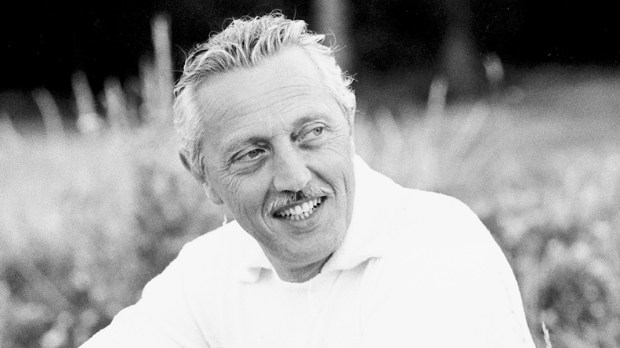For many centuries people with Down syndrome were misunderstood. Some even thought it was a disease caused by syphilis in the mother from prostitution. However, that all changed when Jerome Lejeune and Marthe Gautier, studying in Professor Raymond Turpin’s laboratory, discovered the link between Down syndrome and trisomy 21 in 1958.
This helped families come out of the shadows with the scientific proof that it was a chromosome abnormality and not a result of sinful behavior.
Furthermore, Lejeune’s research was motivated by his deep Catholic faith and concern for others. The motto of his life was, “Just one sentence, spoken by Jesus himself, will suffice to determine our behavior: ‘Whatever you do for the least of my brethren, you do it for me.'”
He also had a special friendship with St. John Paul II, who appointed him the first president of the Pontifical Academy for Life.
Unfortunately, the results of his research were quickly used to promote abortion, targeting children with trisomy 21. This greatly disturbed Lejeune, who was fiercely opposed to the destruction of the unborn.
The enemies of life know that to destroy Christian civilization, they must first destroy the family at its weakest point — the child. And among the weakest, they must choose the least protected of all — the child who has never been seen; the child who is not yet known or loved in the usual meaning of the word; who has not yet seen the light of day; who cannot even cry out in distress.
Lejeune was a strong advocate for the patient, seeking to find cures instead of eliminating the patient.
Medicine becomes mad science when it attacks the patient instead of fighting the disease. We must always be on the patient’s side, always.
He died on April 3, 1994, which was Easter morning. Lejeune’s life has been inspiration to many and on June 28, 2007, his cause for canonization was officially opened. The Association of Friends of Professor Jérôme Lejeune was also created to help promote his cause and further the legacy of Lejeune.
Since then his cause has progressed and the positio, a synthesis of all the documents gathered about his life, was presented to the Vatican on May 5, 2017.
Most recently, Pope Francis recognized the heroic virtues of Lejeune on January 21, 2021, granting him the title of “venerable.” The next stage of his canonization process would be the recognition of miracles attributed to his intercession, moving him to “beatification,” before finally being “canonized” as a saint.

Read more:
The religious order for women with and without Down syndrome is growing. Are you called?

Read more:
How having a baby with Down syndrome changed this rock star’s music

